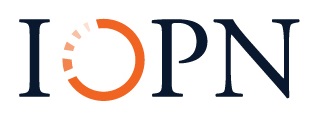Diversity Policy
The Illinois Open Publishing Network (IOPN) is committed to an environment that welcomes, values, respects and supports the differences and contributions of all members and partners at the University of Illinois and in the global community. IOPN actively cultivates partnerships, author relationships, and a portfolio of scholarly works that reflect the diversity of scholarly communities at Illinois and around the world. IOPN provides openly accessible educational and research resources for publishing tools, principles for scholarly communications, and outputs of research scholarship. IOPN is dedicated to facilitating an inclusive scholarly dialogue grounded in respect and appreciation for all individuals and seeks to increase the voices of less represented scholars in the scholarly community. As an open access publisher, IOPN seeks to ensure that all communities have the broadest access to knowledge and research scholarship produced by IOPN authors through accessible digital platforms and discoverable works.
Preservation Policy
The University of Illinois Library commits to preserving the intellectual content of IOPN projects in perpetuity, according to current digital preservation best practices.
Historically, digital preservation has been most successful for content delivered in widely-used formats. We have every reason to believe this will continue to be true into the future. Projects that rely on platform customizations are more challenging to preserve. This is one reason IOPN favors working with open source tools and with stable design templates.
The Library commits to preserving a usable version of all IOPN projects. For projects with highly customized interactive presentations, the preservation strategy may include a combination of approaches, including the preservation of a simplified version of the publication alongside the underlying, raw machine-readable code for the complete project. This ensures that future users, in a different computing environment, will still have the necessary source material to recreate the full interactive expression of the content through software emulation, and future tools that operate in similar capacities.
Preservation of these copies of our publications are deposited into IDEALS, the institutional repository of the University of Illinois, from which they are routed into the library’s long-term digital preservation infrastructure. Web archived versions of projects are also available in the Internet Archive and other locations reflecting the best possible web archive possible at the time of archiving. Links to existing web archive versions are included, alongside other relevant information, in the readme.txt file for each publication in its IDEALS record when relevant.
Open Access Policy
IOPN publishes exclusively open access content, and does not restrict access to publications behind a paywall. Our monograph and other long-form content is typically published under a Creative Commons (CC) license chosen by the author(s) or editor(s) of the given work. Specific policies related to open licensing of journals published through IOPN are left to the editorial boards of the journals: while IOPN encourages CC licensing to enable appropriate re-use, some journals may be available simply as free to read (so-called gratis OA). CC licenses only apply to original content and not content used by permission or under fair use. Specific details on copyright ownership in works and licensing of works can be found on individual publication sites.
Accessibility Policy
IOPN strives to meet accessibility best practices for web publication. We provide accessibility best practices information to authors and editors, and for long-form publications complete a technical check that includes a review of accessibility issues before a title is published in its final form and listed in our publications catalog. We welcome notification from users if one or more of our titles does not meet an accessibility standard. When a fix can be made to accessibility of the publication without affecting the author’s publication design decisions, an adjustment will be made to address the issue. If an issue requires would require changes affecting the final published design, we will seek to provide the publication in an alternate format for users who need it, and users needing such an accommodation may contact us via email. In these cases, and in cases where new best practices arise after a publication is finalized, we will also update our guidance for authors using our publication platforms as well as our technical check process to avoid similar problems in the future. In cases where accessibility challenges stem from the underlying platforms we use, we will work with the open source development community to report problems and identify solutions.
